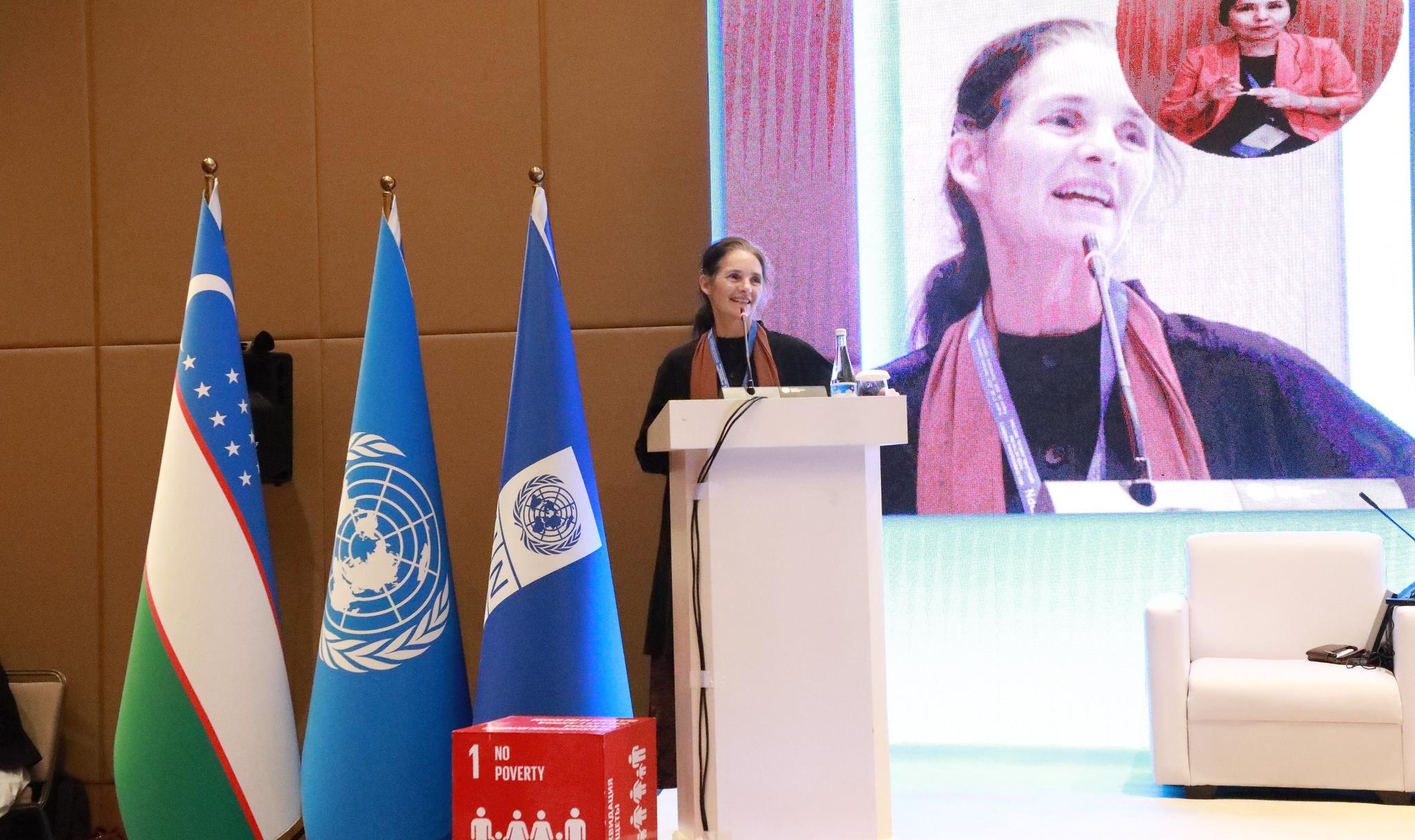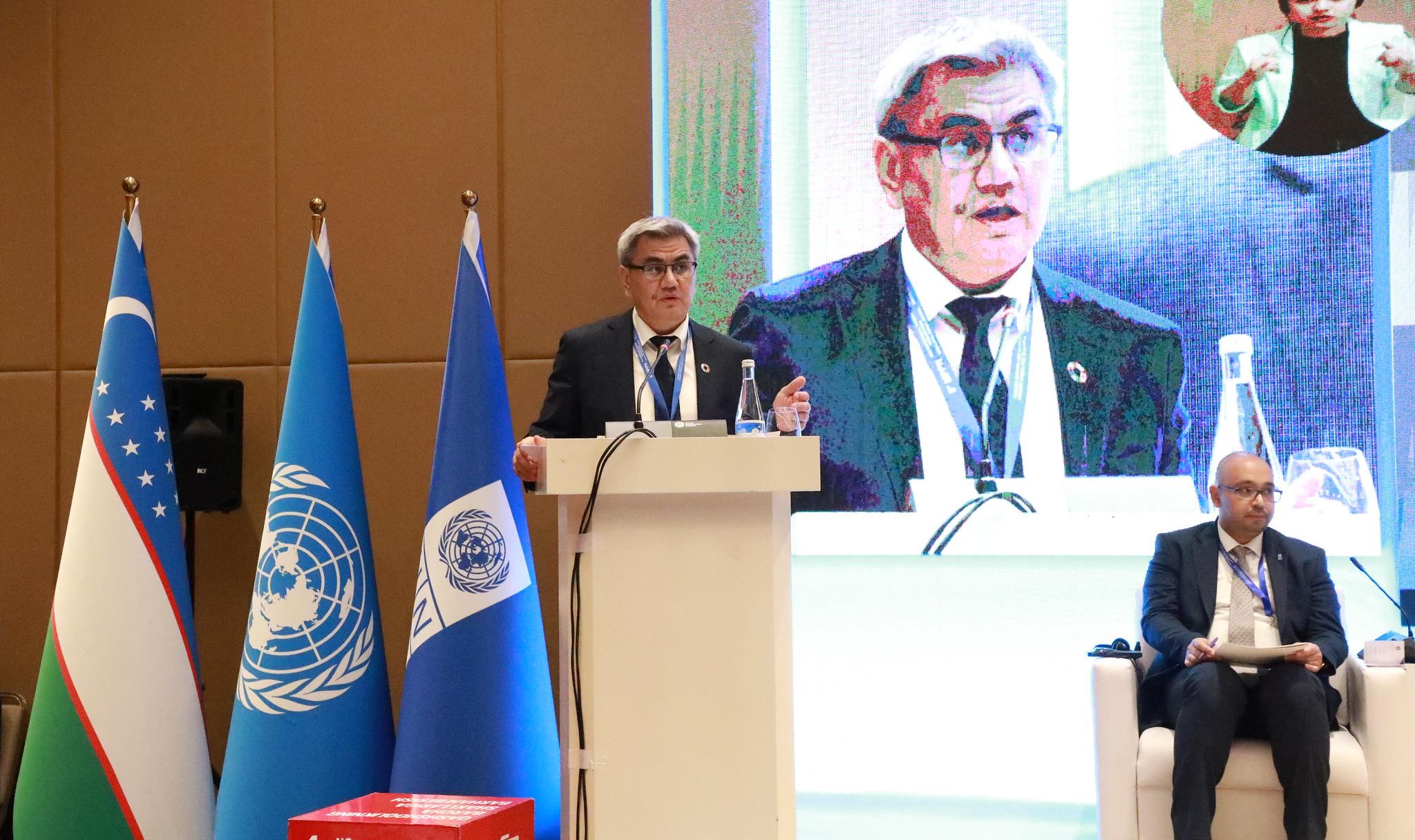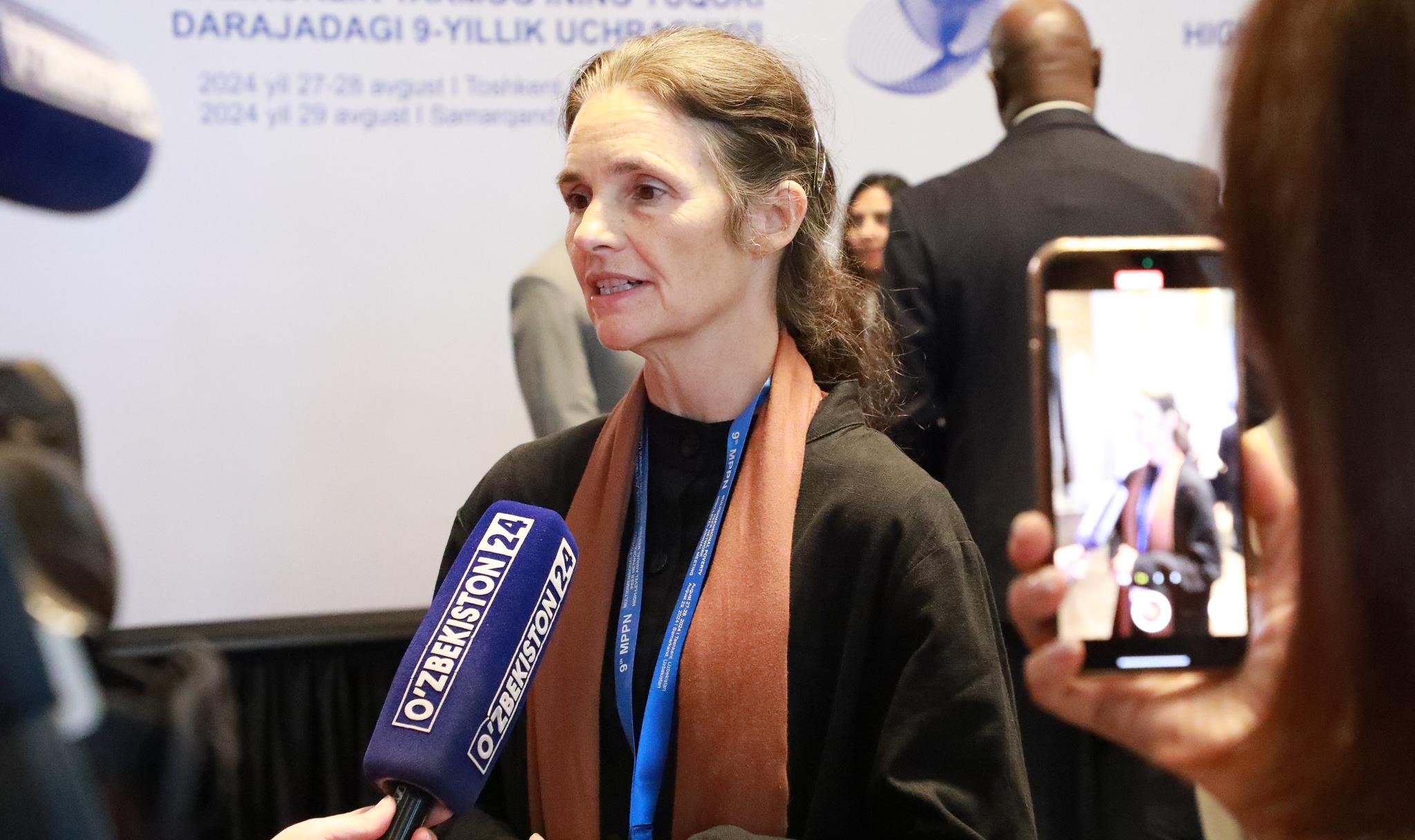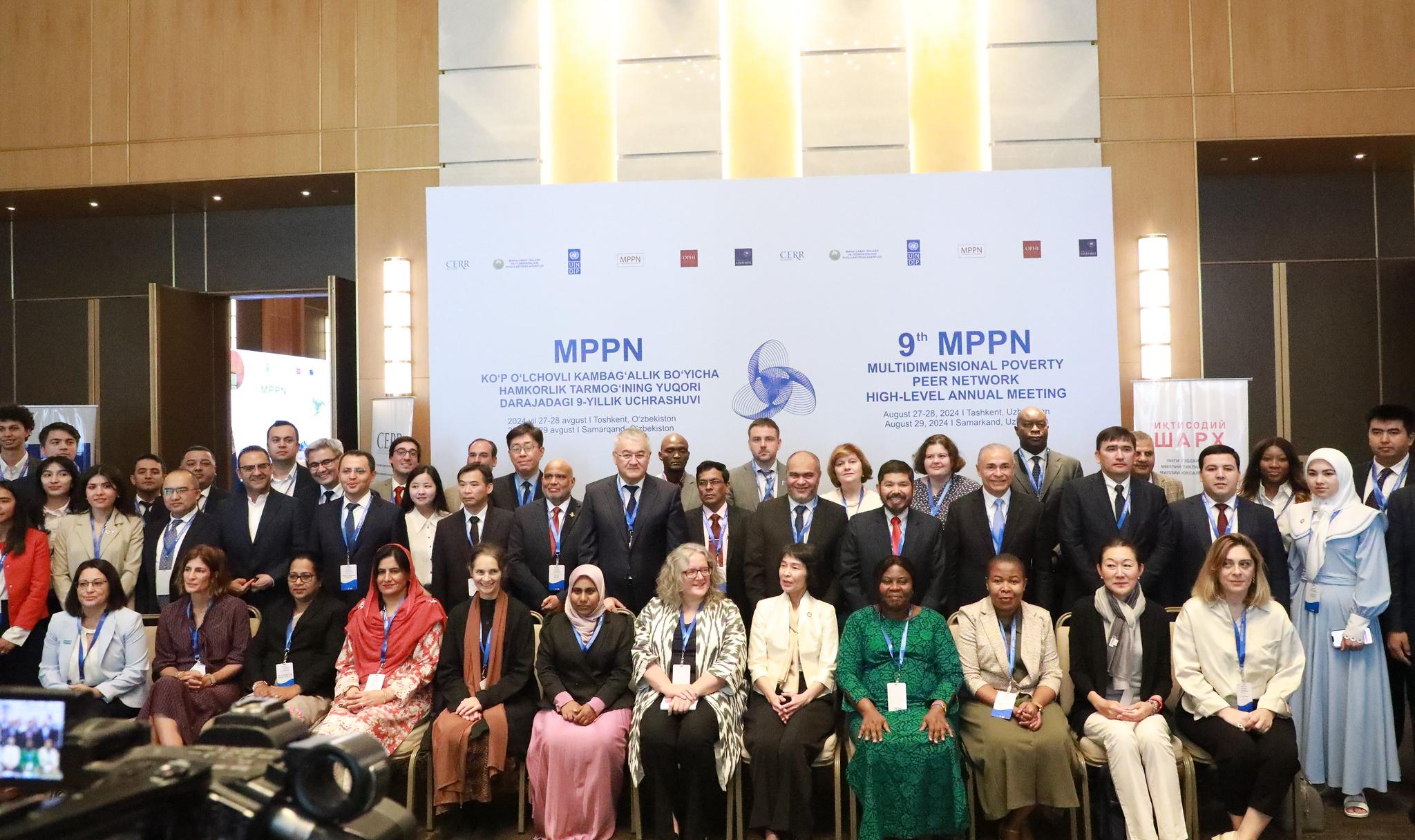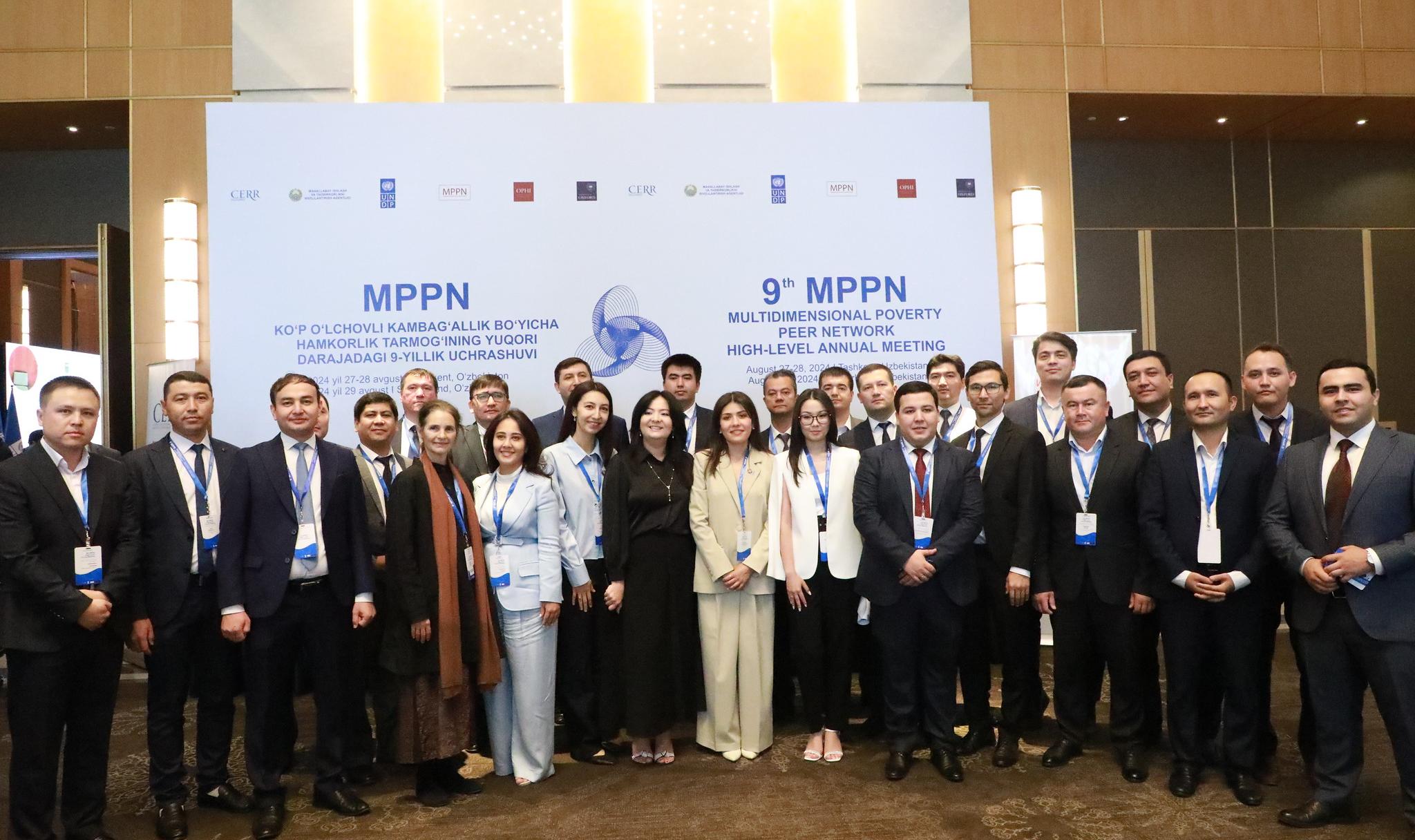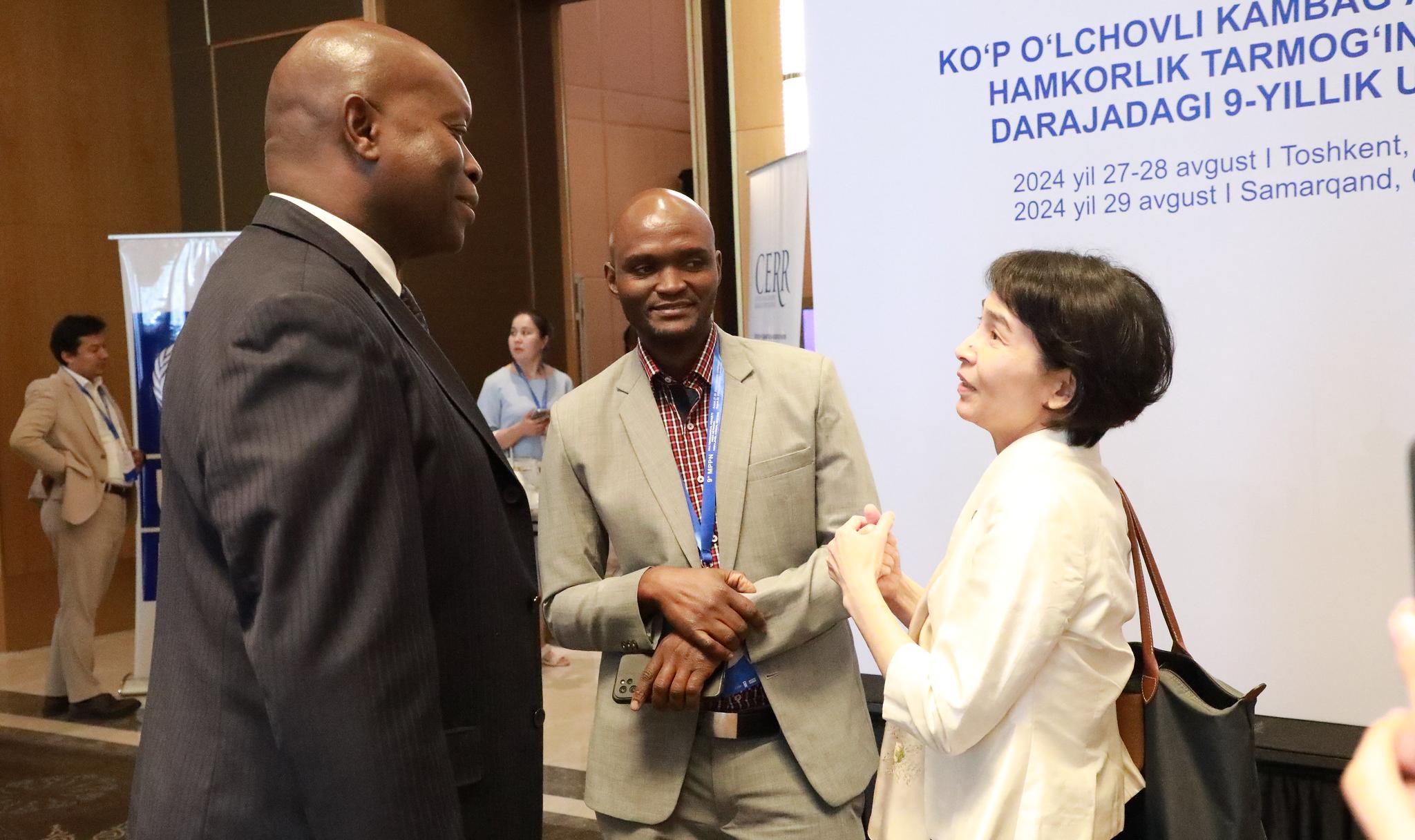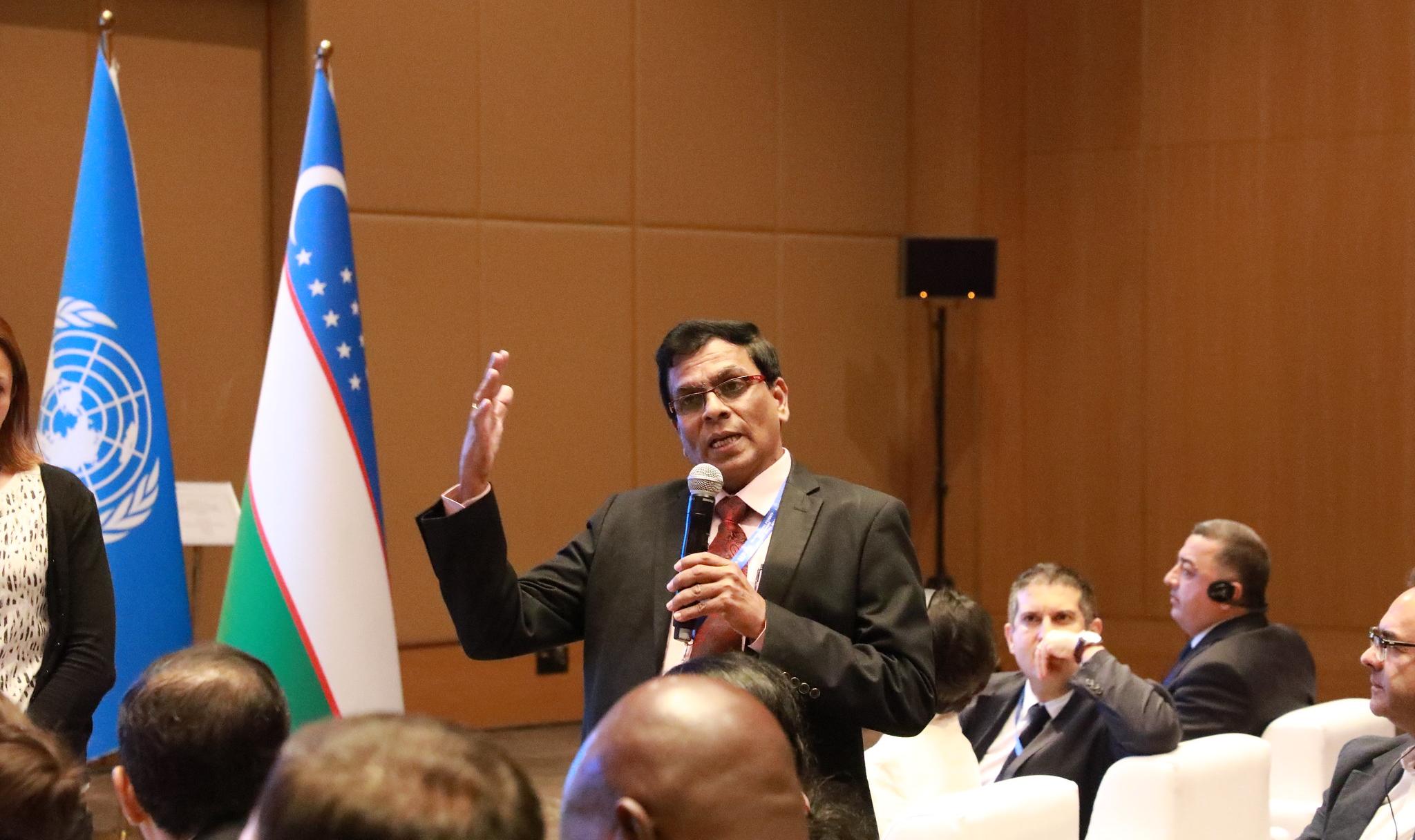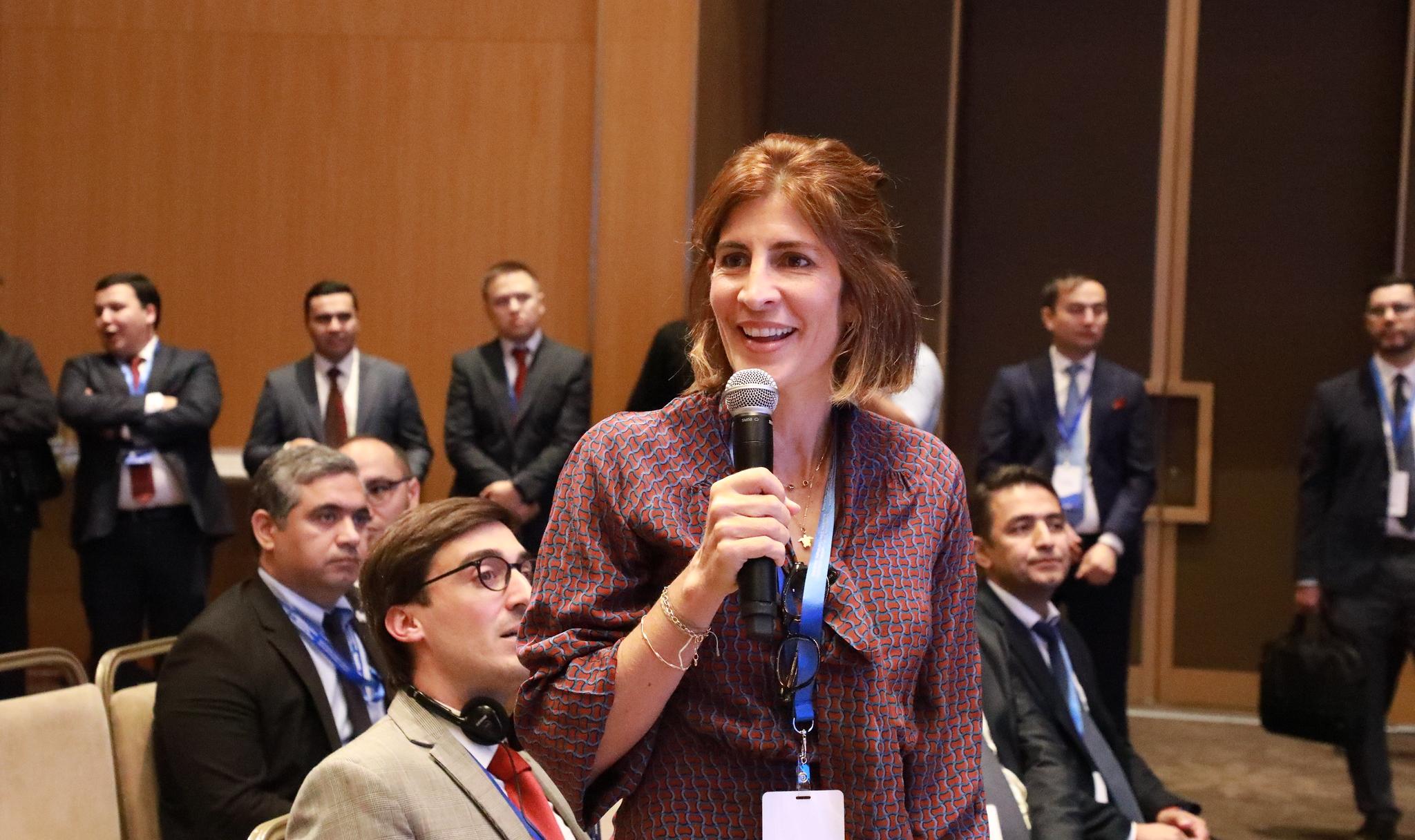MPPN meets in Uzbekistan to 'work together on solutions that can change the lives of millions of people'
The 2024 High-Level Annual Meeting of the Multidimensional Poverty Peer Network (MPPN) concluded on 29 August in Uzbekistan.
The MPPN, which Uzbekistan joined this year, exists to foster peer exchanges among political leaders and government officials who are passionate about reducing multidimensional poverty. The three-day Meeting was graciously hosted by the Government of the Republic of Uzbekistan through the Center for Economic Research and Reforms (CERR) under the Administration of the President and was energetically supported by UNDP Uzbekistan.
The 9th MPPN Annual Meeting brought together 160 high-level participants in the Network representing 18 countries and 11 organisations from all five UNDP regions. Participants included Ministers who lead poverty reduction efforts, or their poverty leads, Director Generals or Statisticians General, and senior officials of international agencies.
In an era of pressing global challenges such as conflict, humanitarian and climate crises, the MPPN provides a discussion space for reflection on shared problems. In the opening session, Advisor to the President of the Republic of Uzbekistan on Economic Development, Ravshan Gulyamov read out the Address of the President of the Republic of Uzbekistan Shavkat Mirziyoyev which concluded with the hope 'that the practical proposals and recommendations developed as a result will become another step towards reducing poverty throughout the world.'
Also in the opening session the Director of CERR, Obid Khakimov, welcomed participants stating 'we have a unique opportunity to exchange ideas and experiences on such an important topic as multidimensional poverty. We have gathered here to work together on solutions that can change the lives of millions of people around the world.' His address was followed by remarks by the Director of the National Agency for Social Protection, Mansurbek Olloyorov; the Minister of Employment and Poverty Reduction of the Republic of Uzbekistan, Behzod Musayev; OPHI Director, Sabina Alkire; the UN Resident Coordinator in Uzbekistan, Sabine Machl; the UNDP Resident Representative in Uzbekistan, Akiko Fujii, and the Director of the MPPN, Gonzalo Hernández Licona.
Over two intensive days, participants shared their insights and challenges related to poverty measurement and reduction in their contexts. Topics included using the MPI for national poverty alleviation policies, developing linked MPIs (where a demographic group requiring additional indicators is linked to a national MPI), MPI in high- and middle-income countries, regional cooperation for poverty alleviation, and the future of the MPI in forthcoming international fora and the post 2030 Agenda.
During the event, CAF, the Development Bank of Latin America and the Caribbean, hosted a special breakfast session for participants from the LAC region to discuss CAF’s shared agenda with OPHI and UNDP LAC to focus on multidimensional poverty and inequality reduction. They discussed plans to support greater regional cooperation, increase capacity building in the measurement and the use of data for the implementation of more effective public policies; and, plans to support more training of public officials in implementing and using multidimensional poverty indices.
On the final day, the Center for Economic Research and Reforms (CERR) under the Administration of the President and the Agency for Mahallabay Work and Entrepreneurship Development arranged an informative visit to Konigil village in Samarkand to view community projects manufacturing paper and vegetable oil under the 'mahallabay' system.
The Annual Meeting reinforced knowledge exchange between policymakers across the global South. In addition, the official Communiqué set out four key recommendations. The Communiqué called for countries and international institutions to continue measuring poverty using the Multidimensional Poverty Index, and to use as a policy and planning tool for high-impact and effective efforts. The Communiqué also urged countries and international institutions to prioritise the collection and deepening of multidimensional poverty data to monitor and track progress and for evidence-based decision-making. The Communiqué called on countries to actively report their progress on reducing poverty in all its dimensions to the Global SDG Indicators Database. Finally, the Communiqué urged international actors to acknowledge and profile the level and trends of multidimensional poverty indices – national and global – as scene-setting indicators when describing global level and trends of poverty.
The Meeting was an opportunity to celebrate the 10th anniversary of the network, and its crucial work towards poverty alleviation and was the first time the Network has convened in Central Asia. Previous Annual Meetings have been held in Oxford, Berlin, Cartagena, Acapulco, Beijing, Joahannesburg and Mahé.
It's been a tremendously moving and profound experience. It was the first post-pandemic meeting that we have had. We had participants from around the world - from places as far flung as Africa, Latin America, East Asia, South Asia - and there was a mixing of statisticians, of ministers, of director generals of poverty...I heard in the closing session some of what the participants were taking away. They took away hope. They took away very concrete things. They need to make multidimensional poverty measures from censuses. They learned how to use them for targeting and social protection. They learned the system in Uzbekistan of applying them at the mahalla level, and seeing poor people as entrepreneurs, and engaging hokims' assistance, and a group of 10,000 people to drive poverty forward. But they also very much commented on the value of the human relationships. What they learned about each other, how they wanted to keep in touch in the future, and how it reinvigorated their own motivation, their compassion, their energies, but also their practical enthusiasm to do what they could...And I think this network meeting will be long remembered for that effect on their own work, and also for the delicious food, the culture, the hospitality that we have experienced here in Uzbekistan. I think that many participants will come back in years to come to remember this time and to share it with other, new people.
OPHI would like to extend sincere thanks to the Government of the Republic of Uzbekistan for hosting this event and to UNDP Uzbekistan for their firm support.
More information
Power Point Presentations: Alkire Introduction PPT, Belarus PPT, Botswana PPT, Brazil PPT, CAF PPT, eSwatini PPT, UN ESCWA PPT, Malawi PPT, Maldives PPT, Moldova PPT, Nepal PPT, Pakistan PPT, Panama PPT, South Sudan PPT, Sri Lanka PPT, Tanzania PPT, UNDP LAC PPT, UNICEF PPT, Uruguay PPT, Uzbekistan CERR PPT, Uzbekistan Ministry of Employment and Poverty Reduction PPT .
Review.uz | 15 August 2024 | Multidimensional Poverty Peer Network Meeting in Tashkent and Samarkand for Global Dialogue




